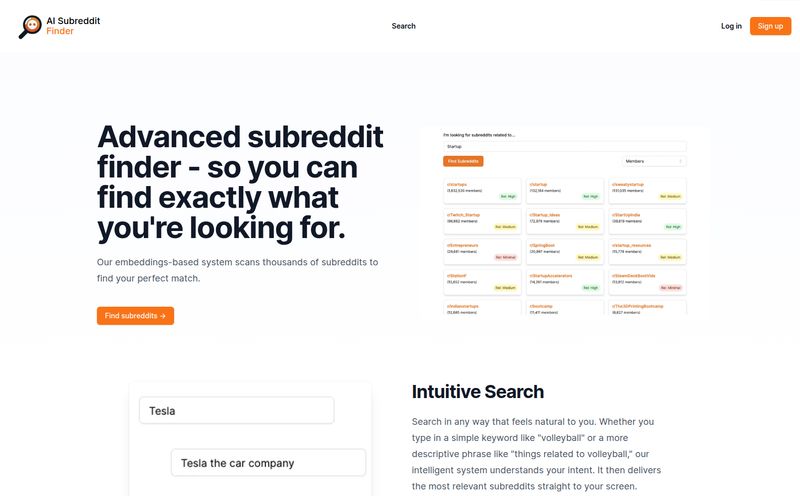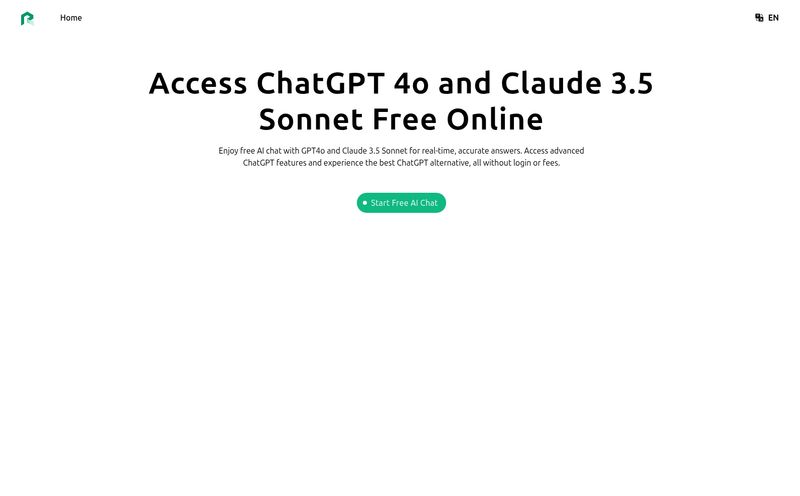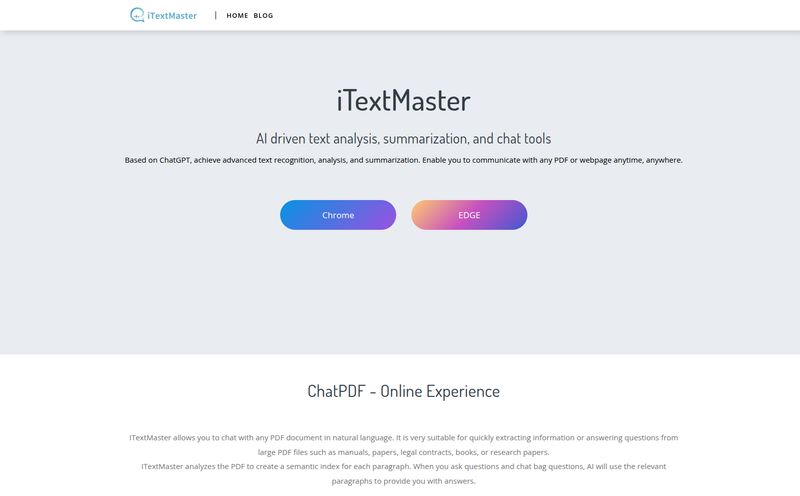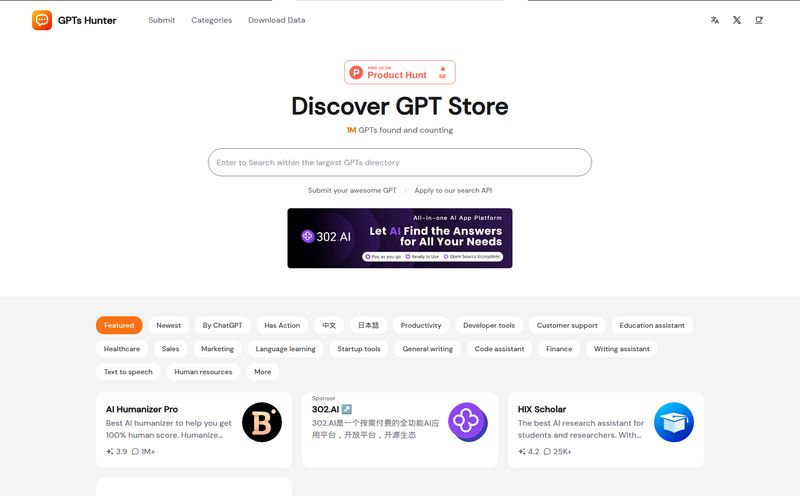I’ve been in the SEO and traffic game for years, and if there’s one golden rule that’s followed me everywhere, it's this: garbage in, garbage out. It was true for content farms back in the day, it's true for CPC campaigns, and it’s truer than ever for the Large Language Models (LLMs) we're all obsessed with now.
We've all seen it. You ask a chatbot for the latest Q3 earnings for a specific company, and it confidently spits out data from 2021. Or it just... makes something up. This isn't the AI's fault, really. It's a knowledge problem. Most LLMs have a knowledge cut-off date. They're like brilliant librarians locked in a library where no new books have arrived in two years. That’s where the whole concept of Retrieval-Augmented Generation, or RAG, comes into play, and it’s where tools like LangSearch are starting to make some serious waves.
So What’s the Big Fuss About LLM Context?
Think about it. An LLM's power isn't just in its ability to string words together grammatically. It’s in its ability to reason and generate responses based on the information it has. When that information is stale or just plain wrong, you get those infamous “hallucinations.” Giving an LLM access to the live, messy, ever-changing internet is the goal, but it’s not as simple as just pointing it at Google. You need a filter. A translator. You need to give it clean, relevant, and accurate context to work with.
This is more than just an academic problem. Businesses are trying to build real products on this technology. Customer service bots that need to access real-time order information. AI research assistants that need to cite the latest academic papers, not ones from three years ago. The demand for reliable, fresh data is exploding. And that brings us to LangSearch.

Visit LangSearch
Unpacking LangSearch: Your AI's Personal Fact-Checker
At its core, LangSearch is a web search and semantic rerank API. That’s a mouthful, I know. Let’s break it down. It’s basically a specialized tool designed to be the bridge between your LLM application and the vast world of the internet. It fetches information, but it doesn’t just dump a list of links on your AI’s doorstep. It cleans it, organizes it, and ranks it for relevance, ensuring your LLM gets high-quality context, not just a firehose of raw data. It's less like a chaotic web search and more like having a super-fast research assistant who pre-reads everything for you.
The Features That Genuinely Got My Attention
I’ve seen a lot of APIs come and go. Most are just wrappers around existing services. But when I looked at what LangSearch is doing, a few things stood out.
The Power of Hybrid Search
Okay, let’s get a little nerdy for a second. For a long time, search was all about keywords. You type “best running shoes,” and the search engine looks for pages with those exact words. That’s keyword search. The new hotness is vector search, which is all about semantic meaning. It understands that “sneakers for a marathon” is related to “best running shoes” even if the words are different. It’s how modern AI understands context.
The debate in teh dev community is often “keyword vs. vector.” LangSearch’s answer? Why not both? Their hybrid search database uses a mix of keyword and vector searches. In my experience, this is the right call. Sometimes you need the precision of a specific keyword (like a product SKU or a person's name), and other times you need the contextual understanding of vector search. Having both in one tool is, frankly, a huge plus.
The “Semantic Rerank” Secret Sauce
Getting a list of results is one thing. Knowing which one is the best is another. This is where the Semantic Rerank API comes in. After the initial search, LangSearch uses its own “LangSearch Ranker Model” to re-order the results based on true relevance to the original query. It’s an extra layer of quality control. It’s the difference between getting a list of 10 articles where one is a gem and the other nine are vaguely related, and getting a list where the gem is right at the top. This is critical for automation, because your AI isn’t going to sift through pages of mediocre results.
It Plays Nicely with Others
There is nothing worse than finding a cool new tool that takes a week to integrate into your existing workflow. The team behind LangSearch seems to get this. They highlight that it's easy to integrate with popular LLM tools and AI agent plugins. This means if you’re already working with frameworks like LangChain or LlamaIndex, plugging LangSearch in should be relatively painless. A real game changer.
My Honest Take on Using It
So, theory is great, but how does it feel in practice? I took it for a spin. Getting started does require an API key, which is pretty standard for any service like this. Once you're in, the difference in the quality of the search results is immediately noticeable. I threw a few complex, natural language queries at it, and the context it returned was clean and, more importantly, accurate. It felt less like a raw data dump and more like a curated summary.
"The context it provided was not just a list of snippets, but a coherent block of information that an LLM could genuinely work with."
Now, it's not perfect. My main gripe is that the documentation on the limitations of the free tier is a little vague. How many calls can I make? What’s the rate limit? I had to do some digging. I wish this were more upfront. But then again, there is a free tier, which you can’t say for everyone. It's more than enough to kick the tires and see if it's a fit for your project before committing any cash.
So, How Much Does LangSearch Cost?
This is the million-dollar question, isn't it? As of my writing this, LangSearch hasn't published a public pricing page. This isn't uncommon for new, developer-focused tools that are likely refining their models. They often start with custom enterprise plans or usage-based pricing behind the scenes.
The good news, as I mentioned, is the free tier. This is huge. It lets individual developers, students, and startups experiment without a credit card. I’d speculate that when they do release public pricing, it will likely be a tiered system based on API call volume, a model we see with many similar services.
Who Is This Really For?
LangSearch isn't for someone who just needs to add a simple search bar to their blog. This is a more specialized tool.
- AI Developers: If you're building applications on top of models from OpenAI, Anthropic, or others, this is your jam.
- Startups with AI Features: Building a smart chatbot, a research tool, or an AI agent? You need to ground it in reality. This is a tool for that.
- Data Scientists & Researchers: Anyone working on RAG systems will immediately see the value in a high-quality search and rerank component.
It’s for anyone who has hit that painful wall where their brilliant LLM gives a dumb answer because its source data is out of date.
Frequently Asked Questions about LangSearch
- What exactly is LangSearch?
- It's a specialized search API built for AI and LLM applications. It finds and provides clean, accurate, and relevant information from the web to give your AI the context it needs to provide better answers.
- How is hybrid search different from a normal search?
- Normal search often relies on just keywords. Hybrid search combines that with vector search, which understands the meaning and context behind your query. This leads to more relevant results, even if the keywords don't match exactly.
- Is the LangSearch API free to use?
- Yes, LangSearch offers a free tier that allows you to test its capabilities. Details on the specific limits of the free tier aren't widely published, but it's enough to get started and build a proof-of-concept.
- What makes LangSearch different from other web search APIs?
- Its focus is on quality and relevance for AI. The key differentiators are the hybrid search model and, most importantly, the semantic reranking step, which filters and orders results to give an LLM the best possible context to work with.
- What is Retrieval-Augmented Generation (RAG)?
- RAG is a technique for improving the accuracy of LLMs by connecting them to external knowledge bases. Instead of just relying on its training data, the AI can first 'retrieve' current information from a source (like LangSearch) and then use that to 'augment' its response. You can read a great explainer on it over at the Pinecone blog.
- Do I need to be a top-tier developer to use it?
- You'll need some programming knowledge to work with any API, but LangSearch is designed for easy integration, especially if you're using existing AI frameworks. It's not for absolute beginners, but a developer working on LLM apps will find it straightforward.
The Final Word: Is It Worth It?
In a world flooded with AI hype, it's refreshing to see a tool that solves a real, tangible problem. The accuracy of LLM applications is directly tied to the quality of the data they can access. LangSearch steps right into that gap, offering a sophisticated but accessible way to feed your AI a diet of clean, relevant, up-to-date information.
While I'd love to see more transparency on pricing and free tier limits, the core technology is solid. The hybrid search and semantic reranking are more than just buzzwords; they’re the right solution to a difficult problem. If you're building anything with an LLM that needs to know what’s happening in the world right now, you should absolutely give LangSearch a look.



